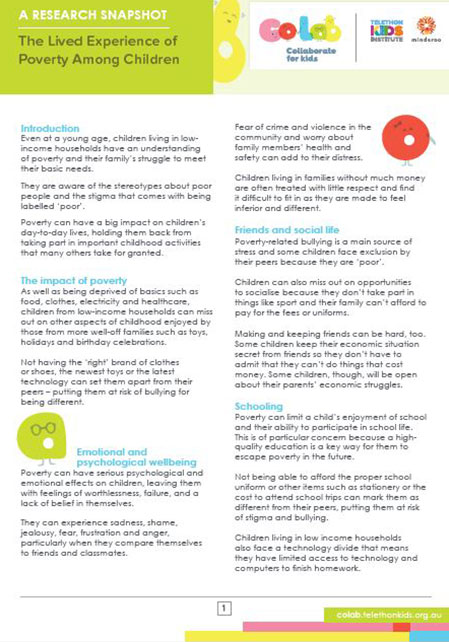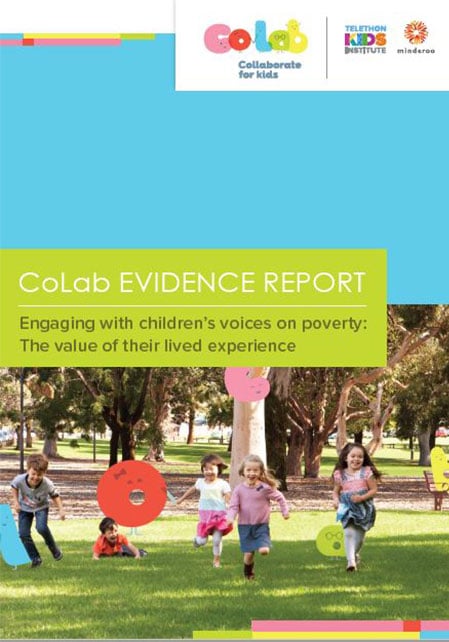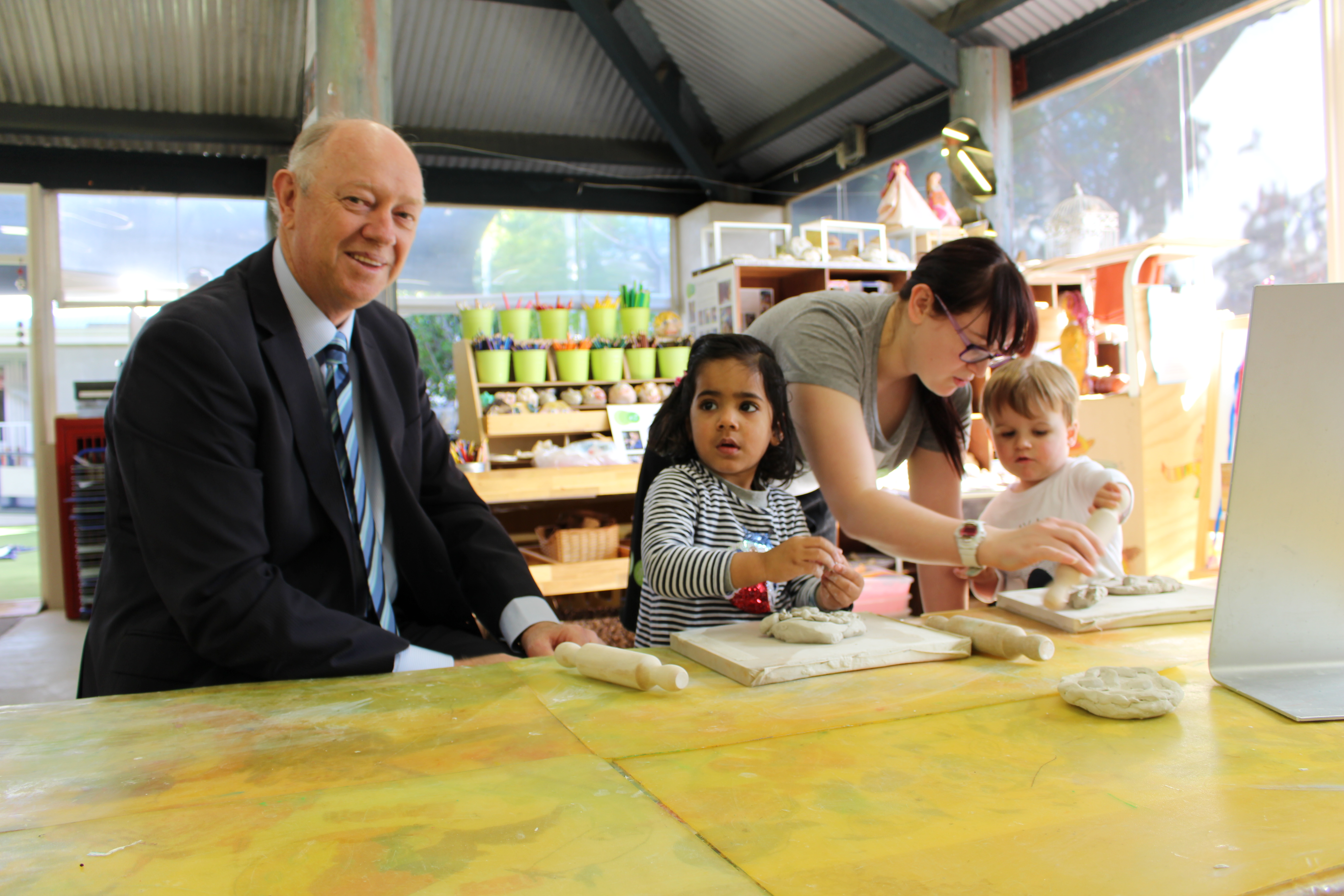The experience of poverty early in the life course can have far-reaching impacts on children’s health, development and educational success, well into adulthood.
The timing of childhood poverty matters considerably, with deprivation experienced in the first few years of life recognised as a particularly robust predictor of poorer outcomes later in life.
Children growing up in adversity show considerably poorer developmental outcomes compared to their more affluent peers, with a widening gap emerging in the earliest years of life, prior to school entry. Health disparities among disadvantaged children and their more affluent peers also emerge in early childhood, and continue to persist over the life course, through biological and neurobiological mechanisms that enable poverty to get ‘under the skin’. Poverty can also exert its harmful effects on children through limiting parents’ ability to provide consistent and responsive care, and a stimulating learning environment for their child. Intervening in the early years to improve educational outcomes for children is crucial to help break the cycle of disadvantage.
Research snapshot
Even at a young age, children living in low-income households have an understanding of poverty and their family’s struggle to meet their basic needs.
They are aware of the stereotypes about poor people and the stigma that comes with being labelled ‘poor’.
Poverty can have a big impact on children’s day-to-day lives, holding them back from taking part in important childhood activities that many others take for granted.
Read this research snapshot for a quick look at the lived experience of poverty in children.
Read the snapshotThe lived experience of poverty
Read the snapshot
Evidence Report
The study of child poverty has typically been dominated by quantitative approaches which have provided a valuable understanding of the prevalence, mechanisms and effects of this phenomenon. However, this literature on child poverty renders children as passive recipients of their experience, not as actively engaged in processing their experiences of poverty.
Consequently, we know far less about the experiences and actions of the children behind the statistics, including how poverty impacts on their perceptions of their own lives and the related issues and concerns that these children identify as important.
Read this Evidence Report for an in-depth look at the lived experience of poverty in children.
Read the reportThe lived experience of poverty
Read the report
News Story
Children’s voices must be heard
Around seven per cent of children and young people live in poverty, and one third are developmentally vulnerable when they start full-time school.
For Children’s Commissioner Colin Pettit, the figures are a stark reminder that despite significant work and good intentions, too many of the State’s children are still falling through the gaps.
“There are far too many vulnerable children in WA from a range of backgrounds and cultures who remain caught in the trap of disadvantage,” Mr Pettit said.
In order to overcome the challenges, these children need support, resources and opportunities.
Read the news storyChildren’s voices must be heard

